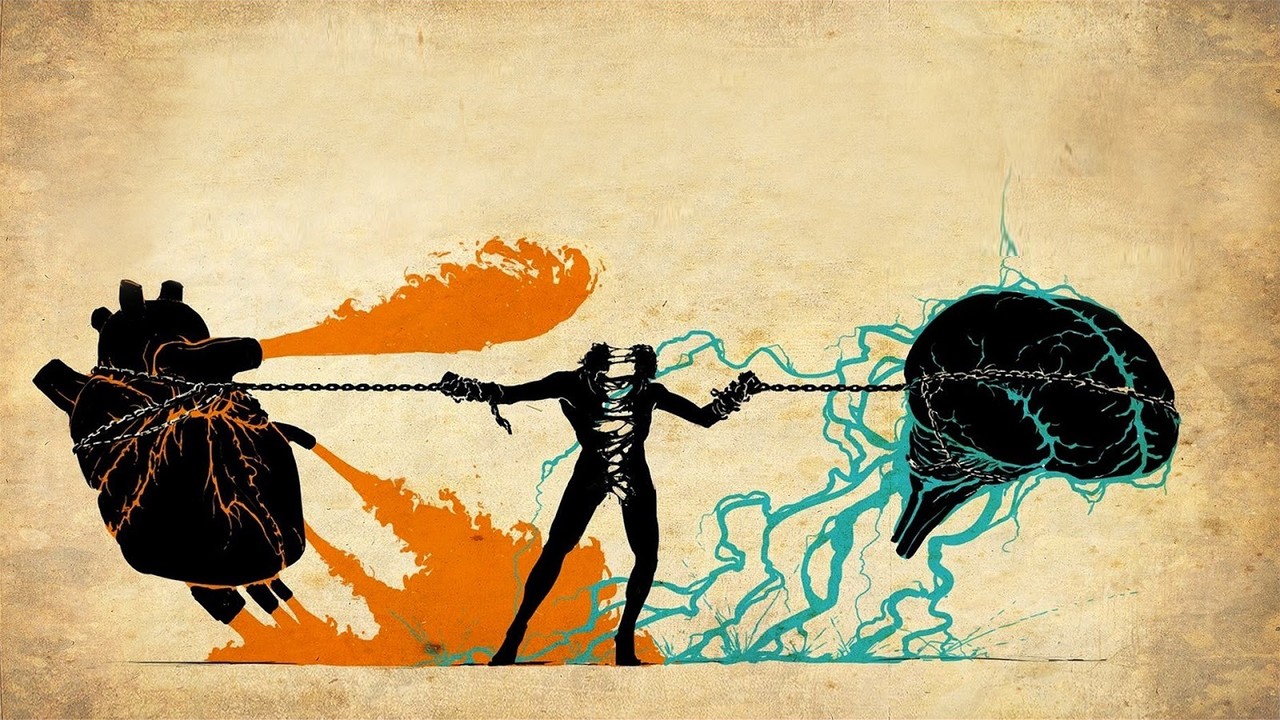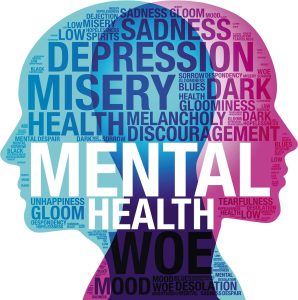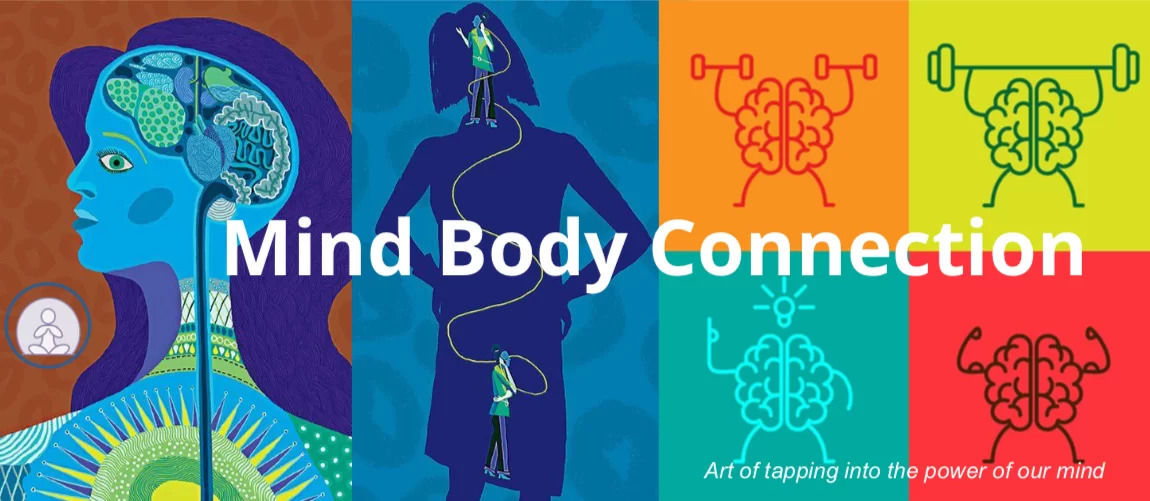
In the tapestry of human existence, the intricate weave of the mind and body forms an interconnected masterpiece. This article delves into the fascinating realm of the mind-body connection, unravelling the layers of influence mental health exerts on physical well-being, and vice versa. Beyond the boundaries that seem to separate them, the mind and body engage in a constant dialogue, shaping our overall health and vitality.
The Bidirectional Influence:
The connection between mental health and physical well-being is a dynamic interplay, where each exerts a profound influence on the other. Scientific research has revealed the complex ways in which stress, anxiety, and other mental health factors can manifest physically, impacting organs, immune function, and overall resilience. Simultaneously, the state of physical health can significantly influence mental well-being, creating a symbiotic relationship that defines our holistic health.
Stress: The Silent Culprit:
Stress, often considered the silent architect of health disparities, serves as a poignant example of the mind’s influence on the body. The body’s response to chronic stress is not confined to the mind; it extends to tangible physical consequences. The release of stress hormones can lead to elevated blood pressure, disrupted sleep patterns, and compromised immune function. Long-term exposure to unmanaged stress becomes a breeding ground for various physical ailments, from cardiovascular diseases to gastrointestinal issues, unveiling the intricate connection between our mental and physical states.
The Immune System as a Reflection of Mental Well-being:
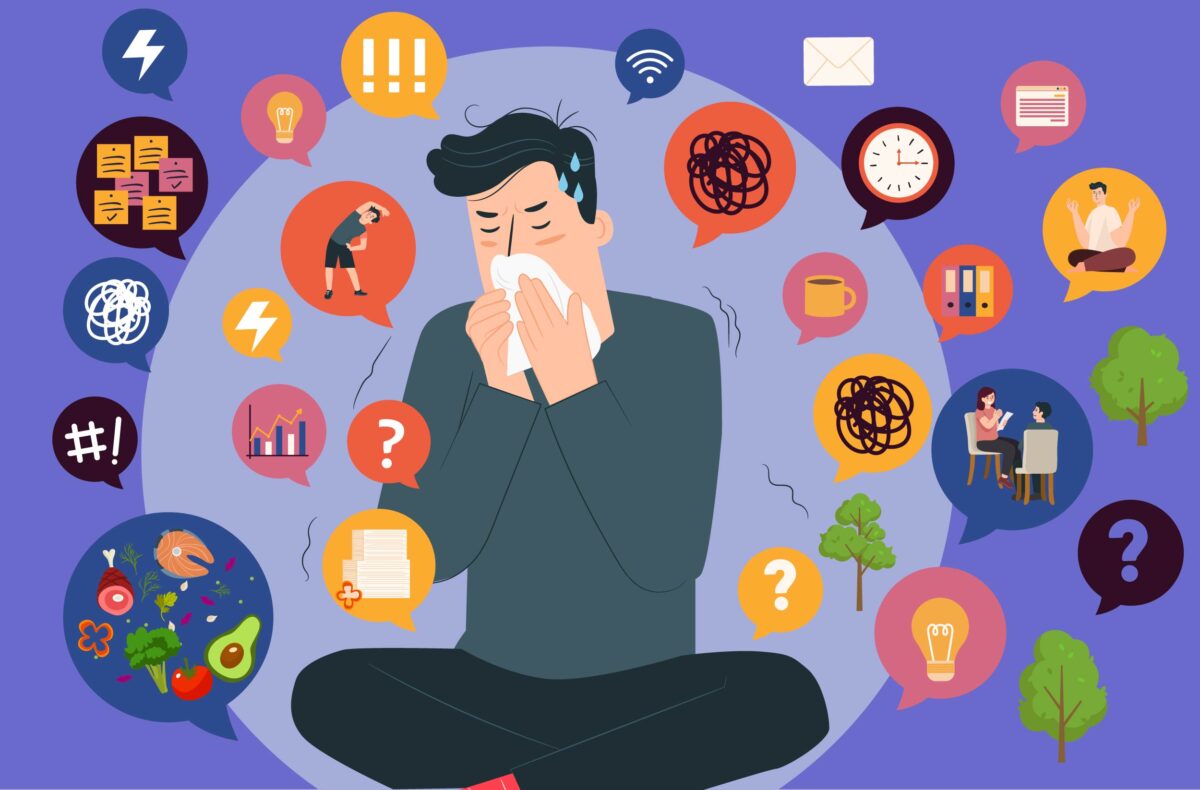
The immune system, our body’s frontline defence against external threats, stands as a testament to the deep connection between mental and physical health. Psychological stress weakens the immune response, making the body more susceptible to infections and illnesses. Conversely, a positive mental state, characterised by optimism and resilience, has been linked to enhanced immune function. This intricate dance illustrates that the mind plays a pivotal role in shaping our body’s ability to defend against external invaders.
Chronic Conditions and Mental Health:
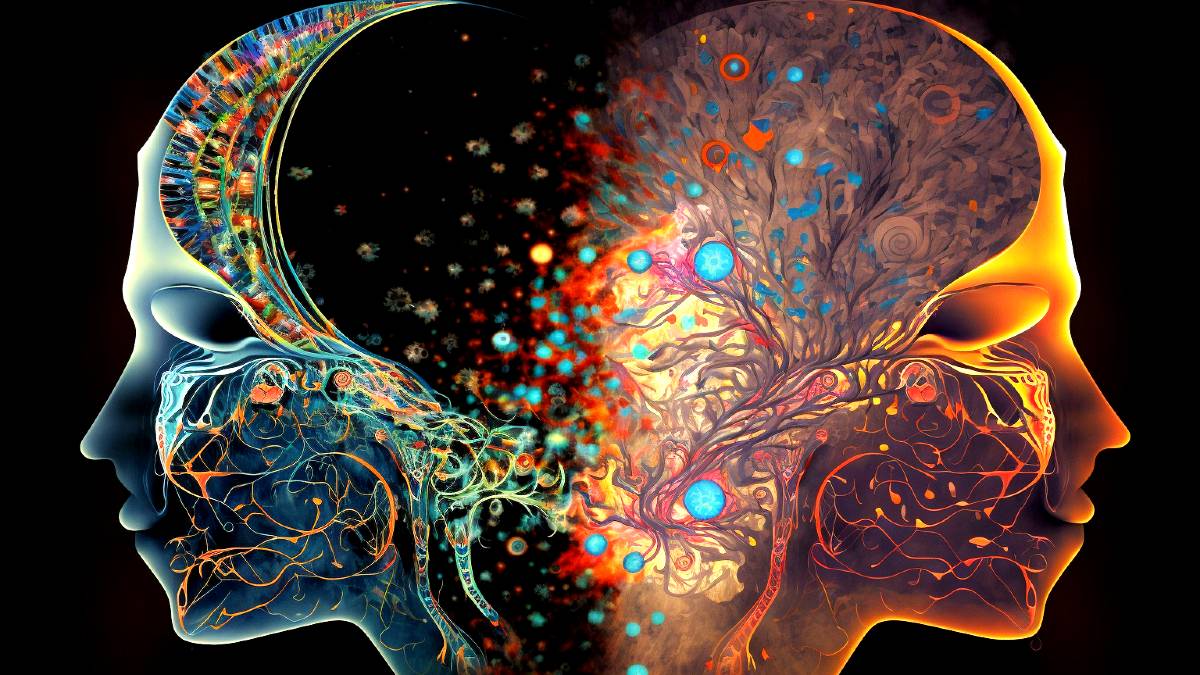
The interplay between mental and physical health becomes even more evident in the realm of chronic conditions. Mental health disorders such as depression and anxiety are not merely isolated experiences but significant risk factors for the development and exacerbation of chronic diseases. Conditions like diabetes, cardiovascular diseases, and autoimmune disorders are intimately entwined with the landscape of mental well-being. The journey of navigating chronic illness becomes a testament to the symbiotic relationship between the mind and body, where the burden of physical ailments weighs heavily on mental health, creating a cyclical narrative.
Neurotransmitters and physical sensations:

The alchemy of emotions and physical sensations is orchestrated by the intricate dance of neurotransmitters. These chemical messengers not only regulate mood but also influence physiological responses, blurring the lines between the realms of the mind and body. The “gut feeling” associated with anxiety or the lightness that follows moments of joy illustrates the direct impact of mental states on bodily sensations, emphasising the profound interconnectedness that defines our human experience.
Pain Perception and Psychological Well-Being:
Pain, often considered a physical sensation, is a complex interplay of both physical and psychological factors. Chronic pain conditions, frequently linked to emotional distress, exemplify how mental health influences the perception and tolerance of physical discomfort. The mind, in this intricate dance, becomes a powerful influencer of pain experiences. Addressing both the physical and emotional components becomes imperative for holistic pain management, acknowledging the inseparable nature of mind and body.
The Power of Positive Thinking:
Cultivating a positive mindset emerges as a powerful intervention that not only shapes mental well-being but also wields significant influence over physical health. The placebo effect, a phenomenon where a person experiences relief simply by believing in the efficacy of a treatment, showcases the undeniable impact of positive thinking on the body’s response. Optimism and resilience have been associated with faster recovery from illnesses, improved overall health outcomes, and the ability to navigate life’s challenges with grace.
Mindfulness and stress reduction:

In the labyrinth of modern existence, the practice of mindfulness emerges as a beacon of light, offering a pathway to alleviate stress and enhance overall well-being. Mindfulness techniques, encompassing practices such as meditation and deep-breathing exercises, not only soothe the mind but also induce tangible physiological changes. The reduction of inflammation and promotion of cardiovascular health exemplify the tangible benefits of mindfulness, reinforcing the idea that nurturing mental well-being simultaneously fosters physical health.
Exercise as a Dual-Action Remedy:
Physical activity, often prescribed for its myriad physical health benefits, unveils its dual nature as a potent intervention for mental well-being. Regular exercise not only releases endorphins, the body’s natural mood lifters, but also contributes to improved cardiovascular health and enhanced immune function. This synergy between physical activity and mental health underscores the holistic nature of well-being, illustrating that a healthy mind and a healthy body are intrinsically linked.
The Role of Sleep in the Mind-Body Connection:

The restorative power of sleep stands as a cornerstone in understanding the mind-body connection. Quality sleep is not merely a physical need; it is a crucial element for cognitive function, emotional well-being, and physical recovery. Conversely, the toll of sleep disturbances on mental health is well-documented, emphasising the delicate equilibrium that defines the interdependence of the mind and body. The pursuit of a restful night’s sleep becomes a metaphorical bridge connecting the realms of mental and physical well-being.
Strategies for Nurturing the Mind-Body Connection:
The journey toward nurturing the mind-body connection encompasses a myriad of strategies that honour the intricate dance between mental and physical well-being. Holistic Healthcare Approaches: Integrative healthcare models that consider both physical and mental aspects offer a comprehensive approach to well-being.
Mindfulness Practices: The incorporation of mindfulness into daily routines through meditation, yoga, or mindful eating fosters a deeper awareness of the mind-body connection.
Balanced Lifestyle: Prioritising a balanced lifestyle that includes regular exercise, nutritious eating, and sufficient sleep contributes to both mental and physical health.
Social Connections: Nurturing positive social connections and seeking support during challenging times enhances mental resilience and provides a buffer against physical health challenges.
Professional Support: Seeking the guidance of mental health professionals and healthcare providers ensures a holistic approach to well-being, recognizing the interconnected nature of mental and physical health.
Conclusion:

In the symphony of our existence, the mind and body harmonise to create a melody of well-being. Understanding the profound impact of mental health on physical well-being illuminates the path to holistic health. As we navigate the complexities of modern life, embracing practices that nurture the mind-body connection becomes not just a choice but a profound act of self-care. The journey to well-being is an exploration of balance, where the mind and body dance in unison, shaping the narrative of our health and vitality. Through this understanding, we embark on a transformative journey that honours the interconnectedness of our mental and physical selves, weaving a tapestry of well-being that resonates with the symphony of life.


